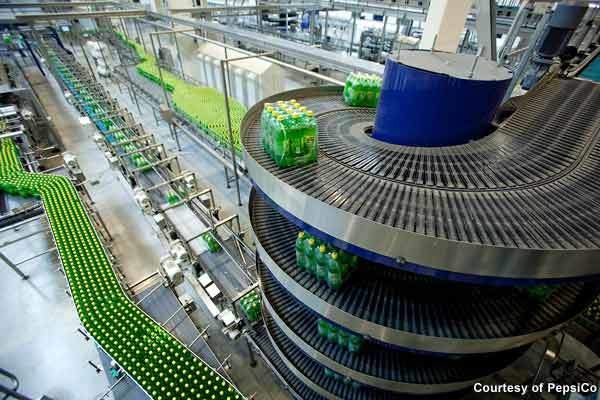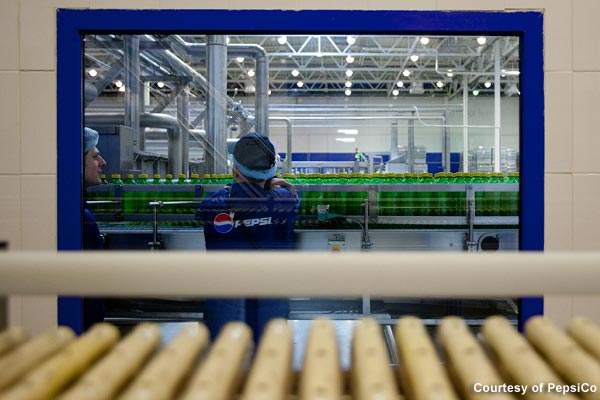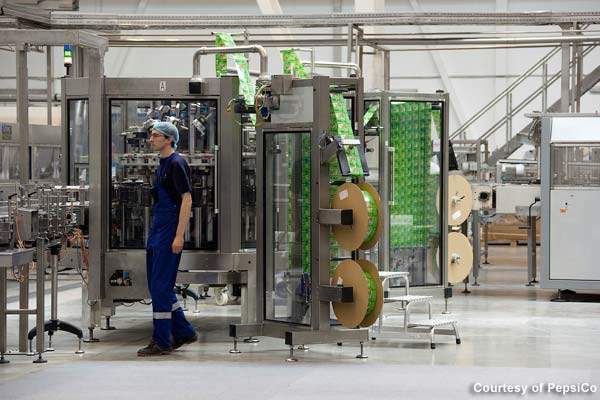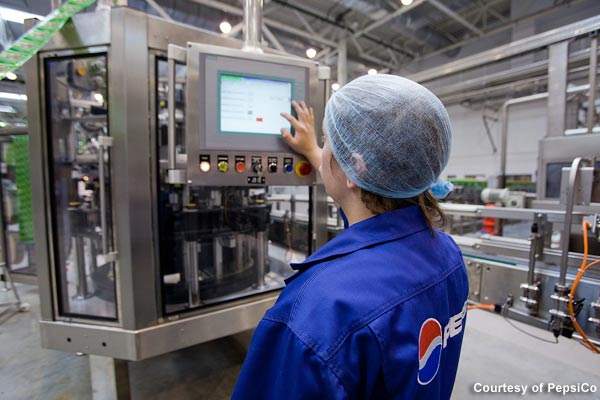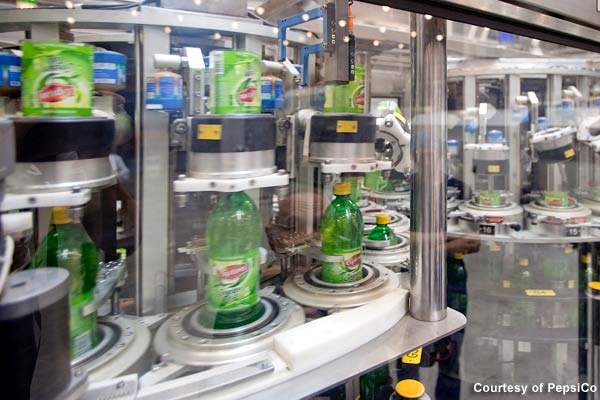In July 2009, PepsiCo unveiled its new bottling plant at Domodedovo, a town on the outskirts of Moscow, Russia. Spread over an area of 70ha, the new plant is located in the Severnoye Domodedovo Production and Logistics Complex. When it achieves full capacity, the plant will be the largest producer of bottled non-alcoholic beverages in Europe, and will also be the largest in the world for bottling.
The total construction area of the plant is 41,000m². Construction of the plant started in March 2007 and was completed in the fourth quarter of 2008. The estimated investment on the plant is $1bn.
The bottling plant has a capacity of 2.1 billion litres per year and is currently manufacturing Lipton Iced Tea on two production lines. The plant is expected to add another five lines to produce carbonated beverages and its Aqua Mineral water. More than 1,000 people are expected to be employed at the new plant.
PepsiCo bottling plant technology
A number of innovative water and energy-saving features have been included in the new plant, to reduce its environmental impact. This includes water-saving schemes such as a modern water filtration system, which employs ozone molecules for purification.
The bottling plant’s labelling technology does not require any glue, and uses less plastic and energy compared to traditional labels. In addition, the plant employs energy-efficient lighting systems.
Bottling plant packaging systems
The new plant utilises ultra-light PET plastic bottles, which are installed on all bottling lines. These PET bottles have already been introduced by PepsiCo for its various brands such as Lipton Iced Tea, Aquafina Alive, Tropicana juice and Aquafina FlavorSplash. Half-litre PET bottles are composed of around 20% less plastic than the original versions.
Contractors
PepsiCo’s new bottling plant was constructed by Domodedovo-based Mega-Stroy, a leading commercial construction company and subdivision of Mega Group. The company built an industrial warehouse complex, office and accommodation unit, two checkpoints for cargo, car wash plants and a parking area for load-carrying transport vehicles at the new plant.
Construction of the new plant started in the second quarter of 2007 and was completed in the fourth quarter of 2008. The total construction area of the plant is 41,000m².
In the fourth quarter of 2006, Mega-Stroy started building the 14,000m² warehouse. The one-storey warehouse was completed in the second quarter of 2007 and includes an administrative building.
Future plans
PepsiCo has announced plans to invest $1bn in Russia in the next three years. This brings the total investments made by PepsiCo in Russia to over $4bn. The investment plan is in line with the company’s strategy to expand in emerging markets. Several beverage companies have been focusing on emerging economies such as Brazil, Russia, India and China to achieve overall long-term growth.
In line with these plans, PepsiCo opened a new snacks manufacturing facility in October 2010. The new plant is located in the city of Azov, Russia.
In collaboration with Pepsi Bottling Group, PepsiCo will also invest in the construction of modern warehousing and distribution facilities for their Lebedyansky juice business. Both companies bought a 75.53% stake in the Lebedyansky juice company in August 2008.
In addition, PepsiCo is planning to invest in Russia’s agricultural industry. The move will enable the company to apply the latest technology in growing potatoes to ensure productivity and quality standards. The investments in Russia are expected to create new jobs and also help PepsiCo to produce a wide variety of food beverage offerings for its consumers.

